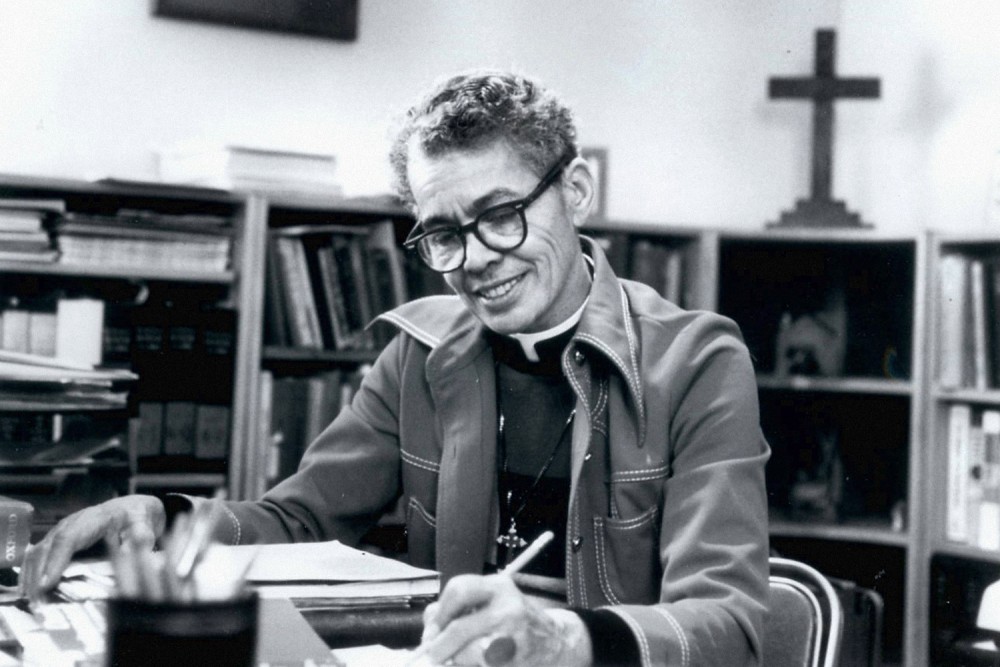Pauli Murray’s song of hope
Her contributions to this nation can hardly be overstated. The federal government’s attempt to erase them has theological implications.

Pauli Murray (University of North Carolina Digital Library and Archives / Wikimedia Commons)
In verse 8 of her lengthy poem “Dark Testament,” Pauli Murray captures the essence of a hope that refuses to be silenced, a hope that persists even in the face of adversity:
Hope is a song in a weary throat.
Give me a song of hope
And a world where I can sing it.
Give me a song of faith
And a people to believe in it.
Give me a song of kindliness
And a country where I can live it.
Give me a song of hope and love
And a brown girl’s heart to hear it.
These lines stand in stark contrast to the Trump administration’s executive order to “restore biological truth” to the United States government—a mandate that seeks to define gender identity in strictly binary terms, erasing from federal resources the lived realities of transgender, nonbinary, and gender-nonconforming individuals. This action has culminated in the removal of key materials acknowledging their existence, including a National Park Service web page about Murray’s life.




